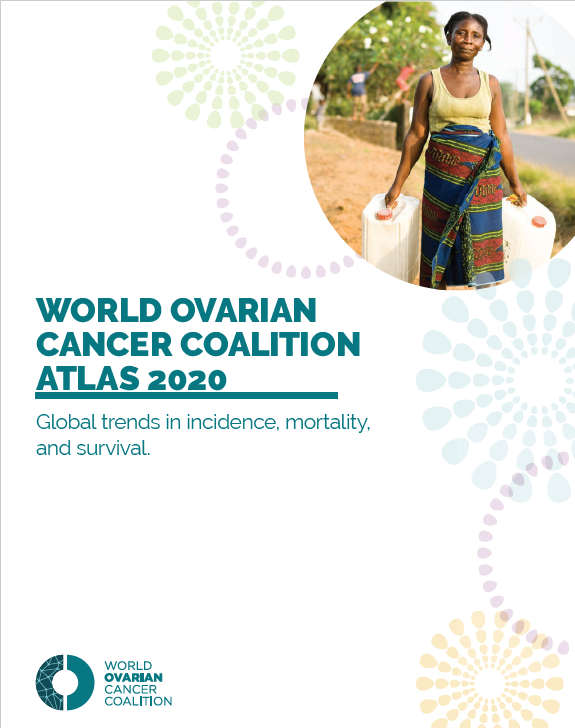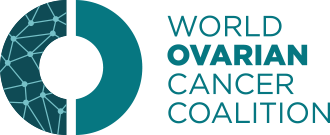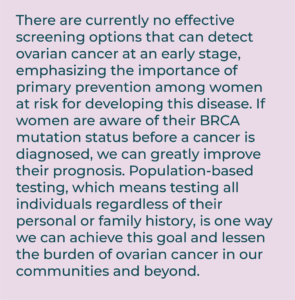FOR IMMEDIATE RELEASE
OVARIAN CANCER INCIDENCE SET TO RISE 47% BY 2040 – YET MOST WON’T HAVE ACCESS TO BASIC TREATMENTS
[October 22, 2020 – Toronto, Canada] Recent advances in ovarian cancer treatments have the potential to radically transform outcomes for many women diagnosed with this lethal disease. However, a report published today by the World Ovarian Cancer Coalition finds that most of the projected 434,000 women worldwide to who will be diagnosed with ovarian cancer by 2040 will not have access to these treatments – with many currently not having access to even affordable diagnostics and treatment options that have been in use for many years.
The 2020 World Ovarian Cancer Atlas launched today by the World Ovarian Cancer Coalition paints a disturbing picture where the gap between the standard of care for women who live in low- middle resource settings and those who live in high resource settings is significant and without urgent action will widen.
‘’While wealthy countries are benefitting from game-changing developments in ovarian cancer treatment, the fact remains that the greatest number of women diagnosed with ovarian cancer live in low- and middle-income countries,” explains Clara MacKay, CEO of the Coalition, “and we have a narrow window of opportunity to work together so women aren’t left behind.”
The 2020 Atlas shows that the increase in numbers of women developing ovarian cancer in lower resource settings is set to increase 47% by 2040, and that guidelines, if they exist at all, vary sharply from setting to setting. Intermittent or inadequate infrastructure and financial roadblocks significantly hinder chances of better outcomes for women who simply cannot access best possible care.
“While the Atlas shows that there has never been a more compelling need for progress it also gives us hope, “said Frances Reid, the report’s author and Programme Director of the Coalition. “It is quite evident from this report and the work on our Global Ovarian Cancer Charter that no one country has all the answers. So, no matter where you are, there is room for feasible and aspirational change and there are examples of good practice that can be adopted and learned from. Collaboration is key and women themselves must be at the heart of the process, leading the call for action and informing progress at every step. We each need to recognise ovarian cancer as a regional, national and global priority today.”
The launch of the 2020 World Ovarian Cancer Atlas takes place as the Coalition begins its Charter Summit Series, each focusing on one of the six Global Goals of the Charter. Making Ovarian Cancer a Global Priority is hosted by BBC World Health Check reporter Claudia Hammond, and it will explore the issues with a global expert panel, featuring advocates, patient groups, clinicians working in a variety of settings, and those working in global cancer data and policy.
The Global Charter’s Goals are:
- Global Priority
- Ovarian cancer must become a global priority, so that the increasing burden and challenges of successfully treating women with ovarian cancer are recognized and planned for at national, regional, and local levels.
- Rapid Diagnosis
- Women must have access to diagnosis without delay.
- Best Possible Care
- Women must have access to surgery, treatments and clinical trials that optimize their chances of survival and quality of life, no matter where they live.
- Family History
- Women and doctors must have access to appropriate and timely genetic testing and counselling.
- Data Improvement
- Data used to develop cancer control plans and treatments must reflect the diversity of local populations to ensure the best possible outcomes.
- Information and Support
- Women must have access to good-quality information and support in their own language that helps them to live well with the disease.
If you are interested in covering the event, you are welcome to attend the free event. We can also put you in touch with speakers, and potentially audience members who come from the clinical, patient and cancer policy community from right around the world.
Our next event on data improvement will be on Wednesday 18th November at 1pm GMT. It will feature discussions and interviews on the importance of good quality cancer registration, the challenges of obtaining such data, what can be achieved with registry data, and the importance of diversity in clinical trials.
###
About ovarian cancer:
Ovarian cancer is the most lethal of the female cancers for which there is no reliable screening test or vaccine. Most women are diagnosed once the cancer has already spread, making it more difficult to treat. There are often delays in diagnosing the disease, as there is no early detection test, and symptoms are often confused with other, less severe, illnesses. Ovarian cancer is overlooked and underfunded – yet every woman is at risk of developing the disease. Ovarian cancer is cancer arising from the cells in and around the ovaries and fallopian tubes. It forms when there are abnormalities in normal ovarian cell growth. New cells grow unnecessarily, and old and damaged cells fail to die away, causing a build-up that forms a tumour or growth. Those growths have genetic mutations that cause them to multiply.
About the World Ovarian Cancer Coalition:
The World Ovarian Cancer Coalition is a not-for-profit organization that seeks to create a world where every woman with ovarian cancer has the best chance of survival, and the best quality of life – wherever she may live. With a stellar international Board of Directors, the Coalition builds on the success of World Ovarian Cancer Day (May 8) every year and the Every Woman Study as it looks ahead to further research, awareness raising, and policy work.
For more information contact:
Clara MacKay
Chief Executive Officer
World Ovarian Cancer Coalition
cmackay@worldovariancancercoalition.org




